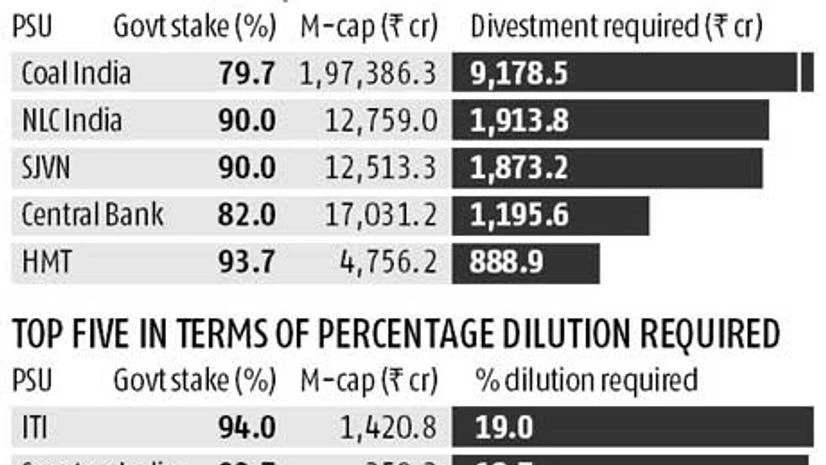The government has sought relaxations from the Securities and Exchange Board of India (Sebi) on meeting the 25 per cent minimum public shareholding (MPS) requirement, the deadline for which is August 21, 2017.
According to sources, the Department of Investment and Public Asset Management (Dipam) has entered into discussions with Sebi over hurdles in bringing down its stake in some companies, particularly non-profitable public sector units (PSUs). Sebi, meanwhile, is open to accommodations on a "case-to-case basis", said a source.
"We are working on the road map for closure and strategic sale of government stake in some PSUs. There are issues of compliance with some firms that need to be addressed," said a senior official of Dipam.
The government will have to divest shares worth over Rs 21,500 crore (at current prices) before August 21, 2017, to meet Sebi's 25 per cent MPS requirement. Currently, there are 24 PSUs where the government holding is more than 75 per cent.
The government is also working with investment bankers on various proposals, which include amalgamation of sick PSUs with well-performing ones in a related business. However, market experts feel the government should ensure revival plans for such companies.
"Before putting the company in divestment drive, the government should first focus on their revival plans. Once the company gets profitable, it would help the government meet two objectives. It would support the depressed stock prices and would help the government sell its holding at a price higher than the current market price," said Deven Choksey, chief executive of KR Choksey Securities.
In 2014, government notified rules for minimum 25 per cent public shareholding in listed state-owned firms.
Sebi had provided three years to government to pare its holdings to 75 per cent.
Previously, listed PSUs were required to have at least 10 per cent public holding, whereas the minimum public holding in non-PSU listed companies was already 25 per cent.

Government has already started the process of pruning its stake down to 75 per cent in PSUs where there are no compliance issues. For instance, in April, it sold 11.36 per cent stake in NHPC. Similarly, on Thursday, it sold 15 per cent stake in NBCC to bring its holding down from 90 per cent to 75 per cent. Besides share sale, the government has also been able to bring down its holding through share buyback programmes.
The disvestment and buybacks done this year are not only helping the government comply with the MPS requirement, but also is helping it achieve the ambitious disinvestment targets.
Centre has outlined a target of Rs 56,500 crore for current financial year, of which Rs 36,000 crore is estimated to come from minority stake sales in various public sector units, while the remaining Rs 20,500 crore would come from strategic sale in various companies. During 2015-16, the government had raised only Rs 23,312 crore through divestment, less than half of the target of Rs 69,500 crore. Huge shortfall amid volatile markets forced the government to scale down the divestment target for current financial year.

)
